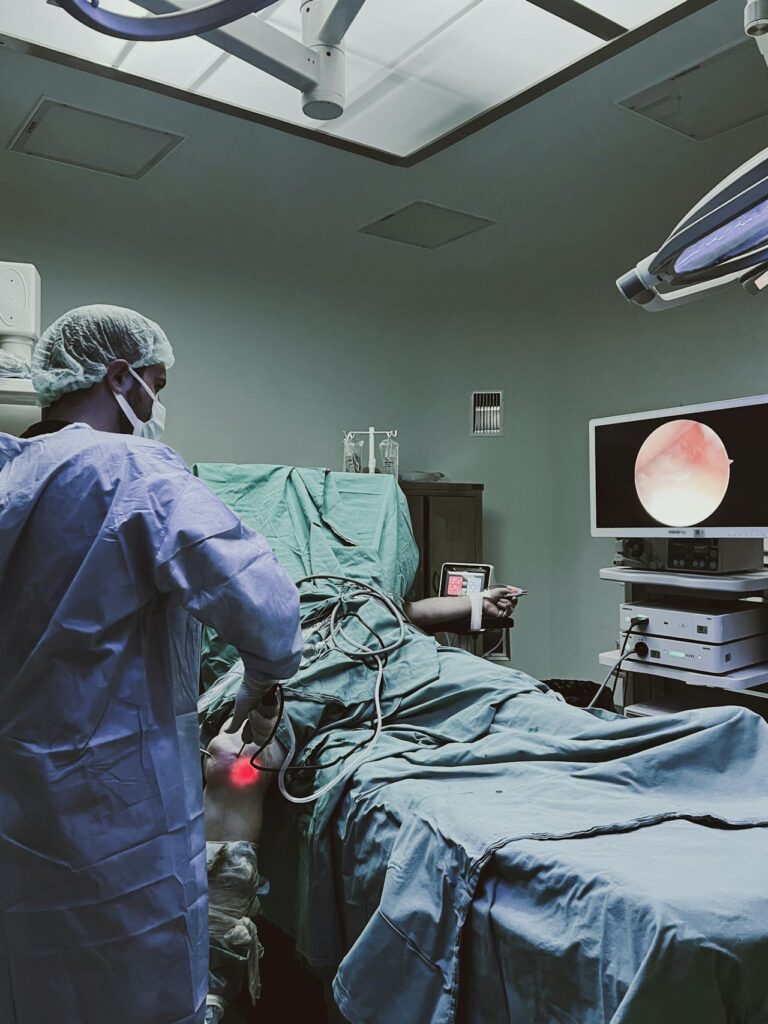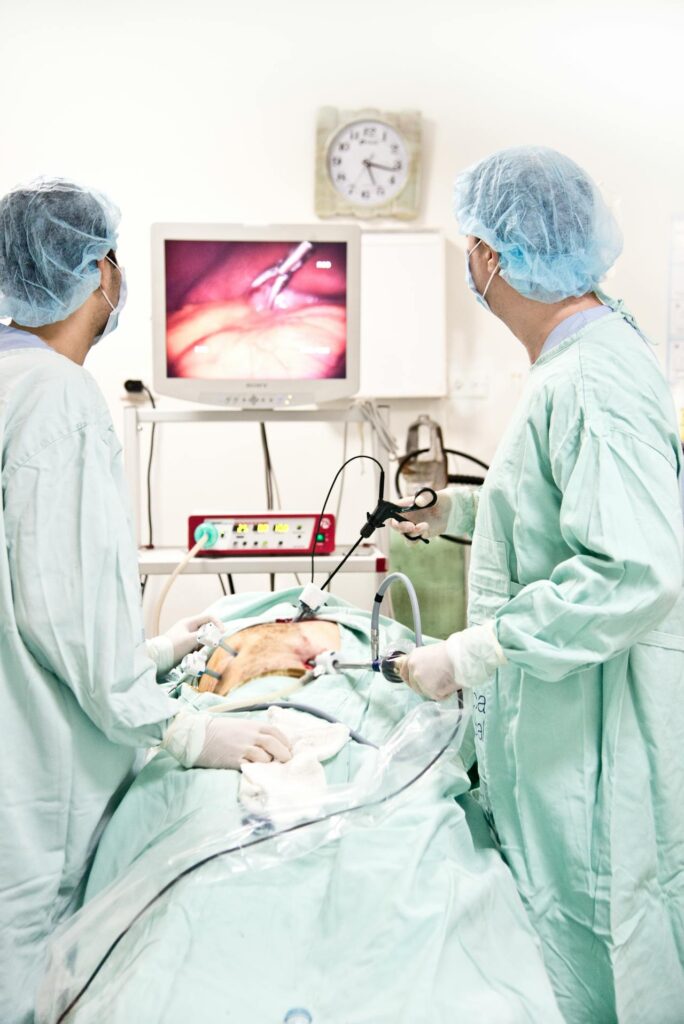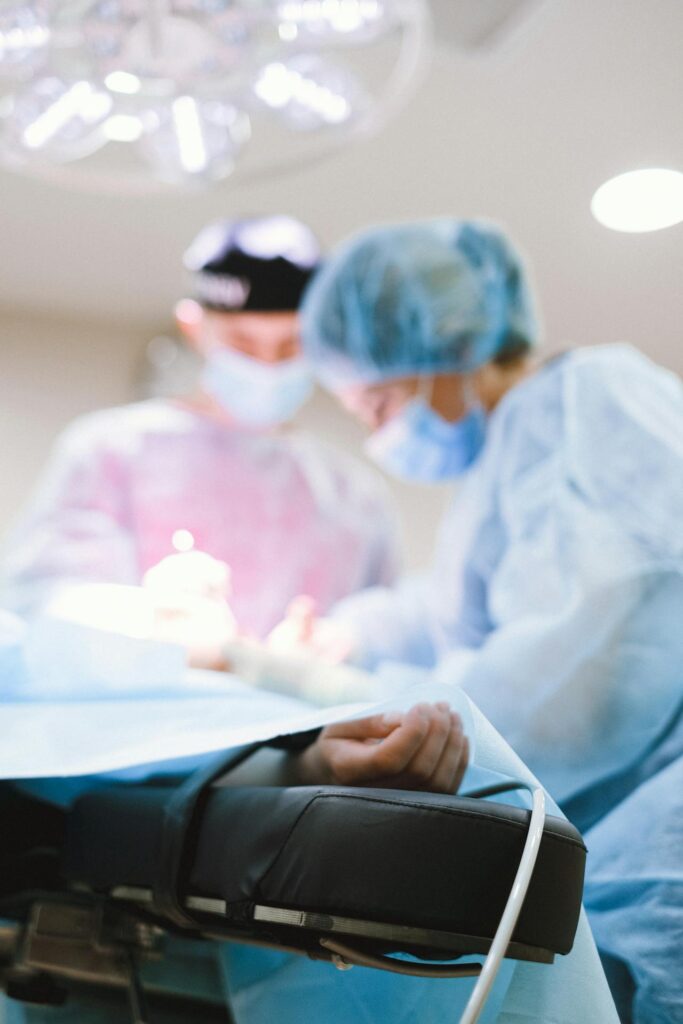Endoscopy in Turkey: Your Amazing 2025 Guide to GI Health
An endoscopy in Turkey offers a clear and precise window into your digestive health, utilizing advanced technology in the hands of world-class specialists. Digestive issues can significantly impact your quality of life, and getting an accurate diagnosis is the critical first step towards effective treatment. Turkey has become a leading international center for gastroenterology, providing swift, accurate, and affordable diagnostic and therapeutic procedures. At Medicaltour.io, we are your trusted partners in navigating this journey, connecting you with the best facilities for your peace of mind and well-being.
Why is Turkey a World-Leader in Digestive Health?
Turkey’s global reputation in gastroenterology is built on a powerful combination of cutting-edge technology, profound medical expertise, and remarkable patient-centered efficiency.
Firstly, the top gastroenterology hospitals in Istanbul and other major cities are equipped with the latest generation of high-definition endoscopic equipment. This includes advanced imaging technologies that allow for better visualization and detection of abnormalities. From diagnostic gastroscopy to complex therapeutic procedures like ERCP, the technological infrastructure is second to none. This commitment to quality is underscored by accreditations from bodies like the Joint Commission International (JCI), which holds these hospitals to the highest global standards of patient care and safety.
Secondly, the experience of Turkish gastroenterologists is a key differentiator. They perform a high volume of procedures annually, giving them extensive experience in diagnosing and treating a wide spectrum of digestive diseases. Many are active members of prestigious global bodies like the World Gastroenterology Organisation (WGO), staying at the forefront of the latest medical advancements. This deep expertise ensures you receive a highly accurate diagnosis and the most effective treatment plan.

Advanced Gastroenterological Procedures in Turkey
Turkish medical centers offer a full range of services to investigate and treat any issue related to the digestive tract, from the esophagus to the colon.
Gastroscopy and Colonoscopy in Turkey
A gastroscopy (upper endoscopy) is a procedure to examine the esophagus, stomach, and the first part of the small intestine. A colonoscopy examines the entire large intestine (colon). These are the gold standard procedures for diagnosing conditions like ulcers, acid reflux, celiac disease, and for screening for colorectal cancer by detecting and removing polyps. They are performed under sedation for complete comfort.
ERCP (Endoscopic Retrograde Cholangiopancreatography)
The ERCP procedure in Turkey is a highly specialized technique that combines endoscopy with X-rays to diagnose and treat problems in the bile and pancreatic ducts. It is an advanced, therapeutic procedure used to remove gallstones from the bile duct, treat blockages, or take biopsies. This requires a high level of skill, which Turkish specialists possess in abundance.
Comprehensive Digestive Health Check-up Turkey
For those seeking a proactive approach, Turkish hospitals offer comprehensive digestive health screening packages. These often include consultations with a gastroenterologist, specific blood tests (e.g., for H. pylori or food intolerances), abdominal ultrasound, and, if indicated, an endoscopy and/or colonoscopy, providing a complete overview of your GI health.

Your Seamless Digestive Health Journey with Medicaltour.io
We understand that undergoing a medical procedure abroad requires trust and support. Our process is designed to be entirely seamless, allowing you to focus on your health.
- Free Online Medical Review: Your journey starts by sharing your symptoms or medical history with us. We facilitate a complimentary review of your case by one of the best gastroenterologists in Turkey, who will recommend the appropriate procedures.
- Transparent All-Inclusive Package: We provide a clear, all-inclusive quote covering your procedure(s), doctor’s fees, hospital charges, hotel stay, and all private VIP transfers. There are no hidden costs.
- Effortless Arrival and Preparation: You will be greeted at the airport and comfortably settled into your hotel. We will transport you to your hospital appointment, where you’ll have an in-person consultation and receive instructions for procedure preparation (e.g., fasting or bowel prep).
- The Procedure Day: The procedure will be performed in a modern, JCI-accredited facility. You will be under sedation, ensuring a painless and comfortable experience.
- Recovery and Results: Recovery from diagnostic procedures is very quick. You will receive your results, often with a full report in English including images, on the same day or the next. Your doctor will explain the findings and recommend the next steps.
- Safe Return Home: After your final check-up and with a clear understanding of your health, we will arrange your transfer back to the airport. Many of the Ministry of Health authorized healthcare providers are available on our platform.

Cost and Quality: An Unbeatable Combination
The financial aspect of healthcare is a significant consideration. A diagnostic colonoscopy in the USA can cost $3,000 or more, while in the UK, private options can be over £2,000. The colonoscopy Turkey cost provides incredible value. A package including the procedure, sedation, and consultation in a top private hospital typically ranges from €500 to €1,200. This saving of 60-80% is achieved without any compromise on the quality of the equipment, the expertise of the doctor, or the safety of the facility. You can find more information about Turkey’s health system on portals like HealthTürkiye.
Compare Gastroenterology & Digestive Health prices in Turkey by clicking here!

Frequently Asked Questions (FAQ)
How long do I need to stay in Turkey for an endoscopy?
For diagnostic procedures like a gastroscopy or colonoscopy, the process is very efficient. A stay of just 2 to 3 days is typically sufficient. This allows for a pre-procedure consultation, the procedure itself, and a follow-up consultation to discuss the results.
Are endoscopy procedures painful?
No. All endoscopic procedures in Turkey are performed under sedation or light anesthesia. You will be asleep and comfortable throughout the procedure and will have no memory of it afterward. You may feel slightly bloated afterward, but this passes quickly.
How do I prepare for a colonoscopy?
Preparation is crucial for a clear view. Your medical team will provide you with a special diet to follow for a day or two before the procedure and a laxative solution to drink the evening before to completely clean out your colon. Detailed instructions will be provided in English.
Is endoscopy in Turkey safe?
Yes, it is extremely safe. When you book through Medicaltour.io, you are connected with internationally accredited hospitals and highly experienced, board-certified gastroenterologists. The safety standards and hygiene protocols are on par with, and often exceed, those in Western Europe and North America. Choose from our vetted providers for complete peace of mind.
Is the preparation for a colonoscopy difficult?
The preparation involves a special diet and a bowel-cleansing solution the day before the procedure to ensure the colon is completely clean for an accurate examination. While it can be inconvenient, it is a crucial step. The clinic will provide you with very clear, step-by-step instructions.
Are endoscopic procedures painful?
No. Procedures like gastroscopy and colonoscopy are performed under sedation or light anesthesia. You will be comfortable and will not feel any pain during the procedure, and most patients have no memory of it afterward.
How long do I need to stay in Turkey for a colonoscopy?
A colonoscopy is an outpatient procedure. A typical visit would require a stay of only 2-3 days, which includes the pre-procedure consultation, the procedure itself, and a short recovery period before you are able to travel.
How is communication handled during the process?
A fluent English-speaking patient coordinator will be your dedicated point of contact. They will assist you with all communication, from scheduling your appointments to translating during your consultations with the doctor, ensuring you are fully informed and comfortable.
Prioritizing your digestive health is a vital step towards overall well-being. Explore the profiles of Turkey’s leading gastroenterology centers on MedicalTour. Request a free, confidential medical review today to get expert guidance on your best path forward.
Glossary of Gastroenterology Terms
Endoscopy: A non-surgical procedure used to examine a person’s digestive tract using an endoscope, a flexible tube with a light and camera attached to it. Colonoscopy: An endoscopic examination of the large intestine (colon) and the distal part of the small bowel with a camera on a flexible tube passed through the anus.
Gastroenterologist: A medical doctor who specializes in diseases of the digestive system and liver.
Polyp: A small growth of tissue, typically benign, that can form on the lining of the colon. Some polyps can develop into cancer over time, which is why they are removed during a colonoscopy.
Sedation: The administration of a drug to produce a state of calm or sleep. It is used during endoscopic procedures to ensure patient comfort.
Glossary
| Term | Short Explanation |
|---|---|
| Colonoscopy | Endoscopic examination of the large intestine to detect abnormalities. |
| Gastroscopy (Upper Endoscopy) | Endoscopic procedure to examine the esophagus, stomach, and duodenum. |
| Endoscopic Ultrasound (EUS) | Combines endoscopy and ultrasound to get detailed digestive tract images. |
| Capsule Endoscopy | Swallowing a small camera capsule to take images of the digestive tract. |
| ERCP (Endoscopic Retrograde Cholangiopancreatography) | Endoscopic technique to examine and treat bile and pancreatic ducts. |
| Sigmoidoscopy | Endoscopic examination of the rectum and lower colon. |
| Polypectomy | Removal of polyps from the digestive tract. |
| Biopsy | Removal of a small tissue sample for diagnostic purposes. |
| GERD (Gastroesophageal Reflux Disease) | Chronic acid reflux causing heartburn and irritation. |
| Barrett’s Esophagus | Precancerous changes in the esophagus lining due to acid reflux. |
| Peptic Ulcer Disease | Open sores that develop in the stomach or upper intestine lining. |
| IBD (Inflammatory Bowel Disease) | Chronic inflammation of the digestive tract, including Crohn’s and ulcerative colitis. |
| IBS (Irritable Bowel Syndrome) | Functional digestive disorder causing abdominal discomfort and changes in bowel habits. |
| H. pylori Infection | Bacterial infection linked to ulcers and stomach cancer. |
| Celiac Disease | Autoimmune reaction to gluten damaging the small intestine. |
| Liver Function Test | Blood tests to evaluate liver health. |
| Hepatitis Screening | Tests to detect viral hepatitis infections. |
| Fatty Liver Disease Management | Treatment and lifestyle changes to reduce liver fat. |
| Endoscopic Mucosal Resection (EMR) | Removal of abnormal tissues from the digestive tract lining. |
| Endoscopic Submucosal Dissection (ESD) | Advanced endoscopic removal of larger lesions in the digestive tract. |
| Gallbladder Removal (Cholecystectomy) | Surgical removal of the gallbladder, often due to gallstones. |
| Pancreatic Surgery | Surgical treatment for tumors or diseases of the pancreas. |
| Whipple Procedure | Complex surgery for pancreatic or bile duct cancer. |
| Colorectal Cancer Screening | Tests and procedures to detect colon or rectal cancer early. |
| Fecal Occult Blood Test (FOBT) | Test for hidden blood in stool, used in cancer screening. |
| Paracentesis | Removal of excess fluid from the abdominal cavity. |
| Gastric Balloon | Non-surgical weight loss method using an inflatable balloon in the stomach. |
| Gastrostomy | Surgical creation of an opening into the stomach for feeding. |
| Esophageal Dilation | Procedure to widen a narrowed esophagus. |
| Small Bowel Resection | Surgical removal of part of the small intestine. |


